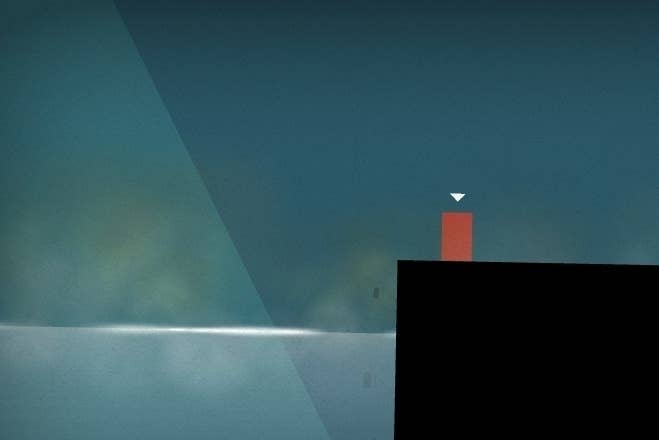Consoles still lend credibility - Bithell
Thomas Was Alone creator explains the value of effective curation as Steam opens the content floodgates
Last year, even as much of the industry speculated on whether consoles were losing their relevance, Thomas Was Alone creator Mike Bithell was getting a first-hand look at how much weight the living room boxes still carried with players. Speaking with Gamasutra, Bithell talked about the boost his game received from debuting on the PlayStation 3 and Vita nearly a year after its PC launch.
"It's really interesting, the credibility consoles still have," Bithell said. "I think because PC is 'the open platform' and anyone can release a PC game, your average gamer who is not seeking out weird indie stuff - for them, me having a PC game coming out doesn't impress them. It's actually a badge of honor to those people. I know Thomas Was Alone gained an incredible amount of 'mindspace,' or whatever pretentious b******* term a marketer would use, because it was out on console. And I saw a ridiculous sales boost just because, the second people saw it was coming to PlayStation, it became a 'real game' for a lot of people."
Bithell said that boost was a testament to the importance of curation in the game industry now. At one point, Steam was a closely curated platform for PC developers, Bithell said, and just landing a game on the store was enough to support a small developer for a year or two on its own. But with Valve moving toward a more open platform with Greenlight and whatever succeeds it, that's no longer the case.
"I struggle to believe that Thomas Was Alone would have been successful were it to come out now on Steam," Bithell said. "It was on the front page of Steam for a week. It was released right before that final moment where being on Steam meant Valve thought you made a great game. That used to be what that meant."
Going forward, Bithell said the challenge for developers will be to find the new curators, like popular YouTube personalities. He knows first-hand how getting a bit of attention from that crowd can drive sales, and it's a trend he expects to continue evolving in the future.
"It's sort of a return to it being about marketing, and Steam have removed themselves from the equation in terms of them being a curator, which - is it good, is it bad? It means a lot of indies are going to have to find a new way of getting an audience, while a lot of the advice from old-timers like me who used the old system is now redundant and useless," Bithell said.

